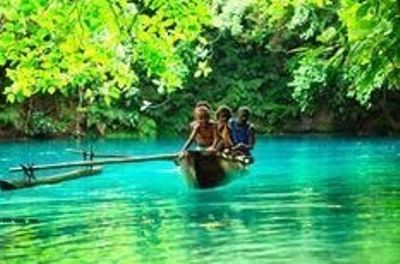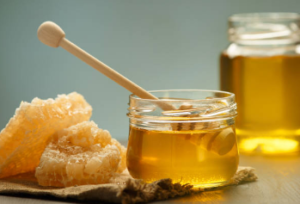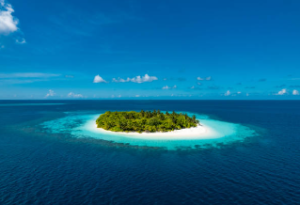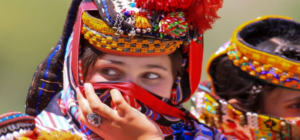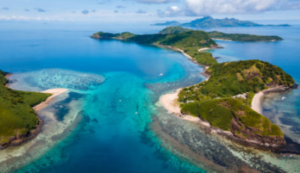In the heart of Oceania, Vanuatu stands out as one of the world’s most untouched and naturally diverse destinations. Nestled between Fiji and Australia, this island nation is a cluster of around 80 islands that offer a blend of scenic beauty, rich culture, and unique traditions. In recent years, Vanuatu has piqued the interest of eco-travellers, culture seekers, and adventure enthusiasts worldwide. This article dives into the fascinating details of Vanuatu, exploring what makes it a top choice for travel in Oceania, using the PSA (Problem, Solution, Action) framework to make the case for this lesser-known destination.
Oceania Vanuatu Problem: Overcrowded Destinations and the Need for Genuine Experiences
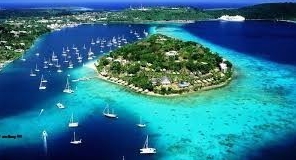
Travel fatigue is real. Mainstream destinations are becoming increasingly crowded, taking away the essence of discovery. Tourists searching for authentic experiences often end up facing long queues, packed beaches, and over-commercialized attractions.
This trend of overcrowded travel spots has left many yearning for a place that feels raw, unexplored, and genuinely welcoming—a destination where people can connect with nature and culture in a meaningful way.
While travellers have been turning to Oceania for its tropical beauty, the well-known destinations are often crowded. Enter Vanuatu: an alternative in Oceania that’s still off the beaten path, making it an ideal solution for those who want to escape the typical tourist hotspots.
Oceania Vanuatu Hidden Beauty Exploring Solution: Why Vanuatu is the Answer to Overcrowded Tourist Spots
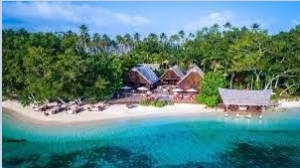
Vanuatu has a unique charm that sets it apart. From its active volcanoes and crystal-clear waters to traditional villages and vibrant cultural heritage, Vanuatu offers travellers a broad spectrum of experiences without the hustle and bustle of popular tourist hubs. Below, we break down why Vanuatu is an ideal destination to escape the crowds while still engaging with nature, culture, and adventure.
- Diverse Landscapes and Natural Attractions
- Mount Yasur Volcano: On the island of Tanna, Mount Yasur is one of the world’s most accessible active volcanoes. Travellers can like up its slopes and experience the thrill of standing on the edge of a fiery crater—a rare opportunity not available in most other places.
- Blue Holes: The islands of Espiritu Santo are famous for their Blue Holes—deep, natural freshwater pools with incredible visibility. Visitors can swim, snorkel, and dive here, surrounded by lush rainforests and untouched nature.
- Champagne Beach: Known for its pristine white sands and sparkling blue waters, Champagne Beach offers a tranquil retreat. The beach is relatively uncrowded, providing a more private experience compared to the busy beaches in more popular destinations like Fiji and Bora Bora.
- Vanuatu’s Unique Culture and Traditions
Vanuatu is home to one of the oldest living cultures in the world, with traditions that have remained largely untouched by modernization.
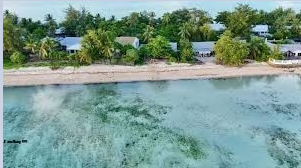
- Land Diving on Pentecost Island: This is one of Vanuatu’s most famous cultural practices and is believed to be the precursor to modern bungee jumping. The ritual, called “Naghol,” involves men jumping from high wooden towers with only vines tied to their ankles as a form of tribal rite, symbolizing bravery and community strength.
- Living with Custom Villages: Unlike many other islands in Oceania, Vanuatu has preserved its custom villages, where locals live by traditional laws, and tourists are welcome to visit. These villages offer insight into a lifestyle that is deeply connected to nature and community.
- Festivals: Throughout the year, Vanuatu hosts various festivals that showcase its rich heritage, such as the Nalawan Festival and the Back to My Roots Festival. These events feature traditional music, dance, and rituals that give travellers a unique glimpse into Vanuatu’s cultural diversity.
- Eco-tourism and Sustainability Efforts
Oceania Vanuatu For travellers concerned with eco-consciousness, Vanuatu has made significant strides in promoting sustainable tourism.
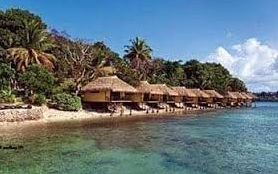
- Plastic-Free Initiatives: In 2018, Vanuatu became one of the first countries to ban single-use plastics, including bags, straws, and polystyrene containers. This move aims to protect the islands’ fragile marine ecosystem and inspire other countries to follow suit.
- Community-Based Tourism: Many of Vanuatu’s tours are community-led and run, directly benefiting local communities. For example, visitors can take part in cultural activities organized by locals, helping preserve traditional practices and providing income for the islanders.
- Marine Conservation Areas: Vanuatu is home to several marine protected areas, including the Hideaway Island Marine Reserve, where travellers can dive and snorkel while respecting strict conservation guidelines.
- Adventure Opportunities in Vanuatu
Adventure enthusiasts will find Vanuatu’s rugged terrain ideal for outdoor activities.
- Diving and Snorkeling: Vanuatu’s underwater life is thriving. Espiritu Santo is home to one of the world’s best dive sites, the SS President Coolidge, a WWII shipwreck. Diving enthusiasts from around the globe come to explore this unique site, now a vibrant habitat for marine life.
- Hiking: Beyond Mount Yasur, Vanuatu offers numerous hiking trails through rainforests, around coastal areas, and up mountainous paths. Trekking through untouched landscapes allows visitors to experience the islands’ flora and fauna intimately.
- Water Sports: In addition to snorkelling and diving, travellers can enjoy kayaking, paddle boarding, and fishing in Vanuatu’s pristine waters.
- Action: How to Plan Your Trip to Vanuatu
Now that you know why Vanuatu should be on your travel list, here’s a practical guide to make your visit smooth and memorable.
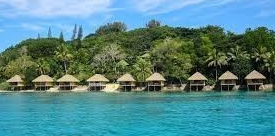
- Best Time to Visit
Vanuatu is a year-round destination, but the dry season from May to October is ideal for clear skies and calm seas, perfect for outdoor activities. The wet season from November to April can bring occasional cyclones, so travellers may want to avoid this period.
- Travel and Entry Requirements
Vanuatu is visa-free for citizens from many countries, including Australia, New Zealand, and most European nations. Ensure you have a passport valid for at least six months beyond your planned stay.
- Getting Around
The best way to explore Vanuatu’s islands is by domestic flights, ferries, and small boats. Air Vanuatu, the national airline, provides regular services between the main islands, while local tour operators offer transport to more remote areas.
- Accommodation
There are several lodging options in Vanuatu to fit every budget. Options range from luxury resorts to eco-lodges and budget-friendly guesthouses. For a more immersive experience, consider staying in locally-owned lodges that support the community.
- Respect Local Culture
Vanuatu has a unique cultural etiquette. Remember to ask permission before taking photos in villages, respect traditional customs, and follow local dress codes. Being mindful of local culture will enhance your experience and ensure a positive impact on the communities you visit.
Case Study: A Traveler’s Journey Through Vanuatu
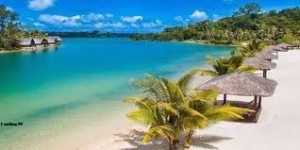
To illustrate how incredible a trip to Vanuatu can be, consider the case of Sarah, a solo traveller from Australia. In search of an authentic island experience away from the crowds, she chose Vanuatu over traditional destinations like Bali or Tahiti.
Her adventure began with a dive into the SS President Coolidge shipwreck, where she was amazed by the vibrant marine life around the historical site. Next, she travelled to Pentecost Island to witness the land-diving ceremony, an experience she described as “powerful and humbling.”
Sarah’s journey then took her to Mount Yasur, where she hiked to the top just before sunset. Standing at the crater’s edge, she felt the rush of witnessing the volcano’s fiery eruptions up close.
something she would later call one of the highlights of her travels.
Finally, Sarah visited a customs village.
Where she learned traditional cooking techniques and participated in a local festival, which gave her a deeper appreciation for Vanuatu’s culture.
Sarah left Vanuatu not only refreshed but with a sense of having connected with a community and landscape untouched by the chaos of crowded tourist destinations. Her case exemplifies the transformative power of exploring a place that prioritizes authenticity and natural beauty.
Conclusion
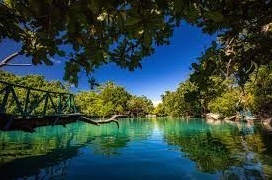
For those tired of the usual crowded tourist spots, Vanuatu offers an experience unlike any other in Oceania. Vanuatu is a place where visitors can truly connect with nature and culture.
Because of its rich cultural legacy, pristine natural features, and dedication to eco-friendly tourism. The adventure opportunities, combined with a warm, welcoming community, make Vanuatu an exciting alternative to mainstream destinations.
As global tourism continues to grow, places like Vanuatu are increasingly rare. If you’re looking for a unique, immersive, and crowd-free travel experience, Vanuatu should be at the top of your list. So, take action—start planning your trip to Vanuatu today and discover.
why this hidden in Oceania is worth the journey?
